Por Gerardo López Amaro
Abya Yala, ‘ripe land’ in Kuna -also known as the American continent- is home to ineffable cultural, linguistic and biological diversity. It is therefore an impossible task to reduce these never-ending processes of differentiation into a concept that names the dynamism and complexity of this land. In the recent history of what the rebellious Zapatistas have called ‘the long 500-year night’ multiple forms of life, human populations, landscapes and territories share the experience of having suffered the first wave of modern colonial invasion, a process that led to many forms of Euro-centered modernity and the establishment of violent and oppressive hierarchies based on race, gender, class, language, and religion, among others. These entangled processes ultimately led to epistemicide/genocide across territories and the universalization of very important fictions such as the Nation-State, the Individual and the (Hu)Man, intimately connected to similar processes in other parts of the world, namely the kidnapping and slavery of African populations, the racialization of Muslims and Jews with the defeat of Al-Andalus, and the suppression or silencing of women’s wisdom through their criminalization and burning in Europe.
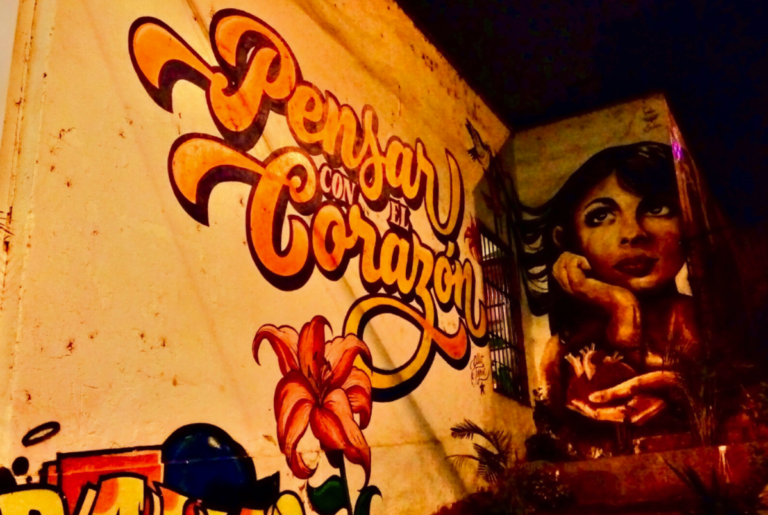
Latin America: a stained concept
This is the beginning of the modern ontological occupation of territories -an occupation that can be physical but that involves an invasion of Being-, a war that has been happening ever since and that has had severe consequences up until now: the invention of the homogenous ‘indigenous’; the forced displacement of indigenous and African populations; the strengthening of patriarchy, the attack on matriarchal or egalitarian societies, and the linking with some local forms of sexism; wisdom, deities, and ways of knowing and being that were turned to ashes, demolished or proscribed, turning the world upside-down and producing beheaded societies; the extinction of hundreds of languages and the attempts to extinguish most of them; the weakening of local knowledge and the loss of biodiversity; and the material accumulation of wealth that funded the subsequent European expansion and the original accumulation of capital, the generalized plunder and racketeering, and the birth of capitalism, industrialization and the pursuit of profit that are at the very basis of the politics of death that has provoked numerous civilization crises, including the current climate emergency.

However, this is also the beginning of a complex, contradictory and rich long-standing lineage of resistance, diversity, solidarity, creativity, radical tenderness and love. In the face of colonial trauma, people cultivated their own ways of being, fled to exilic spaces of refuge and freedom, found ways in which they could keep and actualize their traditions, stories, seeds and languages; found ways to honor and respect their own forms of local government and organizing; nurtured the non-capitalist economies and multiplied manners of caring for people, the soil and the living community of Earth. Despite the rigid, oppressive universality offered by the imperialist canon, people in territories tended to the pluriverse, to the many worlds and ways of being and re-creating life. The everyday forms, technologies and ontologies of dissident populations -indigenous, Black, maroon, women, workers, peasants, etcetera- make evident the harmful lie of a linear, flat, shallow world that actively campaigns for itself trying to impose a regime of truth based on the premise that there is no alternative to it, the One World World myth.
Latin America took shape amid these acute tensions. It is therefore a contested, contradictory and ‘stained’ notion itself as it carries within the colonial imprint while holding an emancipatory horizon. Latin America names the territory comprising the area between the South of the Rio Bravo and Patagonia, often including the islands of the Caribbean.
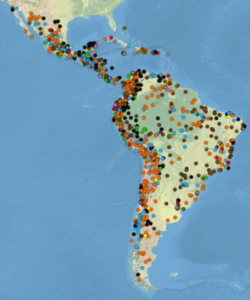
It is home to around 600 languages, thousands of biodiverse ecosystems, and 8 biodiversity hotspots -areas rich in biodiversity with high rates of species extinction.-. It embraces around sixty percent of the global terrestrial, fresh water and marine life, the Amazon alone being the home to around 10 percent of the planet’s biodiversity. It is also the planet’s most urbanized region with around 80% of people living in cities, 55 cities of more than a million inhabitants, and 25% of the region’s urban population living in slums. It is also a region severely impacted by violence, either through State-sponsored repression, paramilitary forces or criminal groups. Finally, it is a region that suffers the current invasion of extractivism, an economical and political mode of dispossession based on the unbridled commodification and exploitation of nature with more than a thousand environmental conflicts mapped out (as seen in the image provided by the Global Atlas of Environmental Justice), half of them suffered by indigenous populations.
The wealth of experiences, ways of being, dwelling, knowing, feeling, practices of tending to the land and the community, the struggles and challenges, all speak of the urgent crisis in which we are deeply embedded and at the same time of the possibilities that are open and being opened by the people and their territories. In the face of neo-colonialism, sexism, racism, climate change, inequalities, and violence, there are glimpses of something different, of a world where many worlds are embraced. If we agree with Thomas Berry that the most important mission of our time is to re-invent the human and our participation in the living systems of which we are part and parcel, the ancestral and modern practices of people resisting and existing otherwise are one of the most relevant sources of learning for the decades to come. It is fundamental to multiply the spaces of mutual learning and listening, of solidarity and attuning so that together we can patiently and inter-generationally face the attack on the commons in better conditions and radicalize imagination and what is possible when humans and other beings are involved in a cosmopolitics of life and affection.
Ecoversities: commoning to re-imagine education
The Ecoversities Alliance is a humble attempt to multiply collective and regenerative learning ecosystems. It harbors multiple communities of practice and learning, eco-pedagogies with experiences that respond to the critical challenges facing the planet. Some of them are accredited universities built from scratch, stretching and undoing the borders of disciplinarity of the old paradigm with the most innovative, creative, critical thinking; others create cracks of enlivened learning within the cemented, rigid structures of traditional universities; some refuse to be contained within the walls of grades and degrees; others are part of an intentional sustainable community, like ecovillages, eco-neighborhoods, or transition towns; some are seasonal and itinerant, creating intense and condensed spaces of conviviality and collective exploration.
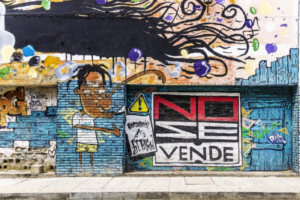 Others have emerged as part of indigenous, feminist, Black, youth, social and environmental movements as an important dimension of the struggles translated into pedagogies for training competent rebels; all of them multiply and nurture the wealth of experiences, practices, theories, ideas, and horizons of possibility in each one of their territories, urban or rural. The projects take many forms – holistic universities, traditional villages and eco-villages, ashrams, cafes, co-working spaces, prisons, under bridges, urban slums, farms, barbershops, and the like. From temporary zones of autonomous learning to well-established campuses, ecoversities blossom in many different shapes, textures and colors.
Others have emerged as part of indigenous, feminist, Black, youth, social and environmental movements as an important dimension of the struggles translated into pedagogies for training competent rebels; all of them multiply and nurture the wealth of experiences, practices, theories, ideas, and horizons of possibility in each one of their territories, urban or rural. The projects take many forms – holistic universities, traditional villages and eco-villages, ashrams, cafes, co-working spaces, prisons, under bridges, urban slums, farms, barbershops, and the like. From temporary zones of autonomous learning to well-established campuses, ecoversities blossom in many different shapes, textures and colors.
The many streams of the Ecoversities river
Overall, we see ourselves as an emergent knowledge movement nurtured by many streams. Among them, we find:
The flourishing power of peripheries, the edges, the margins, that which overflows and cannot be contained in rigid categorizations. The different peripheries -geographical, but not only- are places of bustling creativity where the dignity of life even when facing very difficult situations is tended to. There are many peripheries that are inhabited by those who Mario Benedetti referred to as the “the people who live happily even without permission” and that share with generosity their learning processes.
The activation of an increased sense of relationality in uprooted, de-indigenized, mostly urban folks who have become interested in sustainability, re-ruralization and the exploration of a different subjectivity. They co-create experiences in unschooling, permaculture, upcycling, slow food, hacking, body and movement-centered practices, foraging, artivism and many other threads of activities, designs and approaches.
The vitality of indigenous peoples’ movements and the increased awareness of the importance of the struggles to defend and care for the territory against current ways of dispossession in the form of extractivist megaprojects, generalized violence and non-sense, privatization of common goods and racism in what is a true war against their territories, sensibilities, languages and ways of knowing and being.
The potency of the continental movement of women rebelling against all social relations that sustain patriarchy, shaking its foundations and provoking its collapse in numerous pockets of organization, reflection and action, in cities, bodies, families, relationships, collectives and regions.
The decline of hegemonic institutions, including schools and universities, political parties and media in contrast with the powerful uprising of social movements across the region contesting Power and giving birth to new understandings of public issues, including the racist, colonial, patriarchal and capitalist foundations of the Nation-State, the expansion of rights beyond the limited liberal framework including rights of nature, forms of local governance and autonomy, among many others.
The growing interest in questioning the alliance of science and capitalism and the need to produce knowledge from a location of deep reverence for life and our place as humans, liberating the potential of understanding and affecting our world. Many people in the undercommons (many of them defending public education against neoliberal attacks to privatize, co-opt and bureaucratize knowledge), drops-outs and deprofessionalized scholars are experimenting with approaches to deepen an ecology of knowledges that creates possibilities of respectful encounter between academic knowledge and many other ways of knowing, recognizing with humility the inexhaustible nature of the worlds and realities we inhabit and enact and the magnitude of the challenges we currently face in our shared home.
Steering the canoe
In the Ecoversities Embroidery of the Deep Americas, there are several very important open learnings and questions that guide our process of becoming, a movement with different rhythms and beats, some harmonious, some polyphonic, and some contradictory.
We are learning to consider another way and another sensibility of doing politics in this complex pluriverse of different worlding practices, one that recognizes conflicts as ontological and the world as messy, plural and becoming. Isabelle Stengers coined the term cosmopolitics for referring to “the unknown constituted by these multiple, divergent worlds, and to the articulations of which they could eventually be capable” (2005, 997).
Things do not exist independent of the body that provides the perspective, and nothing preexists the relations that constitute them. This implies the development of a political sensibility that slows down reasoning and asks what realities or worlds are enacted through what practices and how these worlds relate to each other and with what consequences for each. What exists is therefore a ‘communion of subjects and not a collection of objects’ as in the famous formulation by Thomas Berry. Instead of discrete, objective, fixed entities, the worlds are populated by emergence, flux, motion and becoming. The possibility of articulations between them based on a commitment with the pluriverse -the world where many worlds fit- guides our encounters with other humans and other forms of consciousness and agency -other animals, plants, elements, intelligences-, all embedded with the earth, alive, dwelling and knowing. This constitutes a cosmopolitical approach in which we walk while asking questions, allowing space for being one and many.
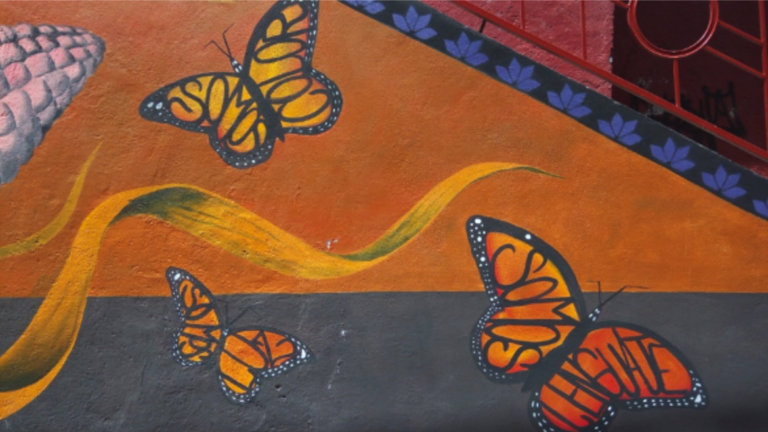
We are learning to not reduce the multiplicity of worlds present in Latin America, Abya Yala, the Deep Americas, to one homogenizing, conditioned, determinant category. This implies the recognition of multiple programs, agendas, sensibilities, histories, needs, pains, and hopes that must be honored and acknowledged in their complexity. We need to create an expanded practice of intercultural translation that involves both epistemological and ontological dimensions. Such tools might allow the movement to perceive more closely who, how and what is included and excluded, and what are the patterns and power dynamics that are at play in each moment in which contact happens and with it the possibility of articulation.
We are learning about the importance of the territory in the learning and organizing processes, in the local, bioregional or macro-regional level. The territory is not a place or a group of people, it is more similar to the Andean notion of the ayllu, a dynamic space of interbeing, a weaving where all the beings in the world, all the threads, are related at such deep level that “it is important to remember that this place [the community] is not where we are from, it is who we are” (Oxa, 353). In that sense, the emergent weaving of Ecoversities in Latin America is a fractal territory, an ayllu with relationships integrally entangled and not an aggregate of isolated units.
We are learning to acknowledge identities as an emancipatory site of reclaiming the agency, respect and dignity of those groups that in the racist/colonial/sexist order have been targeted precisely because of identity, how we speak or how we look, how we feel or how we know and learn. At the same time, we are learning to decenter the essentialist idea of fixed, essentialized identities that prevent the cosmopolitical possibility of articulation when they become merely performative and functional to the State and the Market.
One very important example -among many others- is the notion of mestizaje, an essentialized category that resorts to the argument of people in Latin America being the result of the colonizing process as mixed-race people, an ecumenical mix of colonizers and colonized that is resolved and at peace in that category. In doing so, it conceals more than what it reveals, as Silvia Rivera Cusicanqui says, because the mestizo -unlike the indigenous- is never named as a colonized ethnicity and in doing so it conceals the de-indigenizing, uprooting process that the mestizo has suffered in their lineage, with all of its contradictions and stains. In Aymara, Silvia shares, there is the concept of ch’ixi, a concept that is an “active recombination of opposed worlds and contradictory signifiers that weave a fabric at the very border of those antagonist poles” (2015:226), and that reference multiple and mottled cultural differences that do not fuse or solve but that antagonize and coexist. In this sense, cosmopolitical learning is about how to creatively sustain these tensions in a way that does not deny them. Ch’ixi-ness is the foundation of a cosmopolitical question of what it means to re-indigenize our relationships to self, others and Earth.
We are learning to value autonomic spaces as the primary site for cosmopolitics. This means de-centering the State and its traditional forms of organizing and managing participation and governance. The territory is linked to the question of autonomy as a defense of life and autonomy points out to taking care of the territory as a matrix of life. In the fractal ayllu of Ecoversities, non-hierarchical, radically democratic ways of taking care of our commons have been the way to relate and coexist. These practices must be strengthened, nurtured and deepened, learning from the times we fail and from the times we succeed.
We are learning to undo patriarchy and how it is expressed in and for every-body, in our relationships and our forms of organizing and communicating. This is particularly important in our societies where machismo is still very much alive and where being a woman or woman-like is a dangerous thing that compromises safety, freedom and even life. The potency of the rebellions against patriarchy is huge and a central pedagogical task of the learning ecosystem of Ecoversities is about multiplying spaces to unlearn sexism and recognize all the consequences of having been socialized in a society very much structured and based on it.
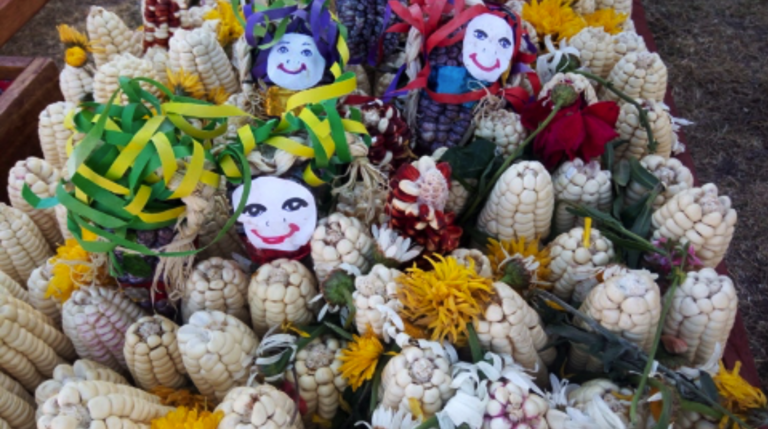
We are learning to cultivate non-anthropocentric ways of being. Situating the human within a community of life endowed with personhood and agency, in a deep time perspective and exploring how to be good ancestors, enables the possibility of undoing the human as a narrative of dominion over nature -including other humans- and opening up ways of re-inventing ourselves in ways in which we can become mindfully present for the Earth and her relations in a mutually beneficial way.
In the emergent planetary movement for climate, relational, ontological, cognitive and social justice that is midwifing ways to dismantle patriarchy, capitalism, colonialism, the human and every form of dominance of oppression, Ecoversities plays a humble part in the reflections of putting into play situated, embodied, pluriversal forms of cosmopolitical learning to re-xist, creating a regenerative learning ecosystem in Abya Yala that weaves itself in a vibrant movement that inaugurates ways of being that resist the non-sense of the project of the One World World while becoming more attuned to the dream of the Earth and the possibilities of a world where many worlds can be embrace
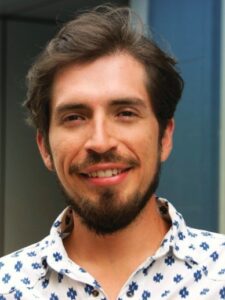
Gerardo López-Amaro engages in activist scholarship around Buen Vivir, ecopedagogies and practices of re-existence. He explores ways to highlight the experiments to co-create viable alternatives to the current system and address the global challenges of our times.
Images by ShonEjai, Nicolas DEBRAY and cameradud from Pixabay


